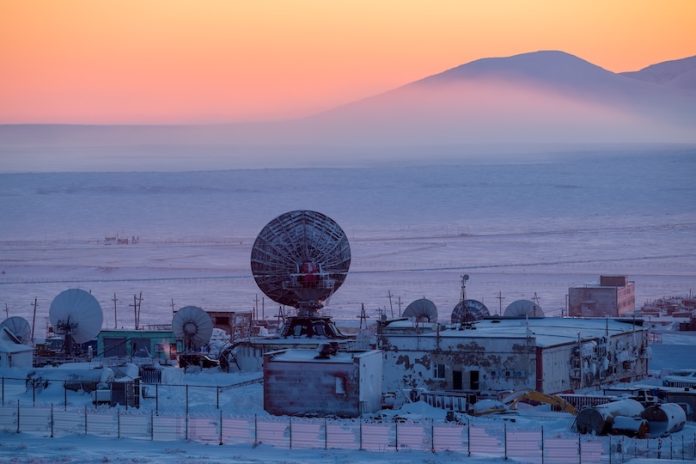Despite being on the fringes of global geopolitics in the past, the Arctic has now emerged as a region of critical strategic importance for Russia’s aspirations of great power status. In recent years, Russia has significantly increased its military presence in the Arctic, reopening previously closed military posts and investing in military capabilities. However, alongside these military endeavors, Russia has also shown a commitment to international peace and cooperation in the region. This essay argues that to fully understand Russia’s behavior in the Arctic, it is essential to adopt a constructivist perspective that considers the cultural elements shaping its strategic decisions.
The essay is divided into three main sections. It begins by examining existing literature on Arctic security policy, highlighting the dichotomous views of the region as either a cooperative space or a resource-rich territory for dominance. This binary narrative, derived from realist perspectives, often oversimplifies the complex motivations behind Russia’s Arctic policy. By delving into Russia’s strategic culture, the essay aims to shed light on the deeper ideational factors influencing its actions in the Arctic.
Between Conflict and Cooperation
Mainstream literature on Russian Arctic policy tends to portray the region through a lens of either cooperation or conflict, influenced by realist frameworks. While some scholars emphasize Russia’s military expansion in the Arctic as a pursuit of power and hegemony, others point to cooperative efforts such as joint research programs and environmental protection initiatives. The concept of Arctic exceptionalism has also played a role in framing the region as a unique area separate from broader international tensions.
However, a closer look at Russia’s strategic behavior reveals a more nuanced approach. By considering the interplay between economic interests, military modernization, and cooperative engagements, it becomes evident that Russia’s actions in the Arctic are guided by a combination of pragmatic considerations and strategic interests. For instance, the development of the Northern Sea Route as a major transportation artery reflects Russia’s focus on economic growth and resource utilization.
Strategic Culture
While traditional realist and liberalist perspectives offer valuable insights into state behavior, they often overlook the role of cultural factors in shaping decision-making. By adopting a constructivist lens of strategic culture, this essay aims to explore how Russia’s cultural heritage, sense of great power status, and vulnerability inform its Arctic policy. Strategic culture, defined as collectively held ideas and beliefs, offers a deeper understanding of Russia’s motivations and objectives in the Arctic.
For Russia, the Arctic evokes a sense of historical entitlement and a longing for greatness dating back to the Soviet era. The country’s strategic narrative in the Arctic is intertwined with notions of sovereignty, status ambitions, and geographical uniqueness. Russia’s military buildup in the region is not merely a display of power but a reflection of its perceived vulnerabilities and historical traumas. By analyzing Russia’s strategic culture, we can decipher the complex interplay of power projection, historical narratives, and defense of sovereignty in the Arctic.
Great Power Imaginaries and Threat Perception
At the core of Russia’s Arctic strategy lies its aspiration to maintain great power status and ward off external threats. The country’s strategic culture is deeply rooted in a narrative of self-defense, territorial integrity, and resistance to Western encroachment. Russia’s historical narrative, Orthodox heritage, and physical dominance in the Arctic region all contribute to its sense of entitlement and exceptionalism.
Moreover, Russia’s perceived vulnerability to Western aggression shapes its military posture in the Arctic. The country views its military buildup as a means of protecting its borders and securing its strategic depth. By analyzing the historical and cultural dimensions of Russia’s strategic culture, we gain valuable insights into the motivations behind its Arctic policy and its broader geopolitical ambitions.
Conclusion
In conclusion, Russia’s dual approach to Arctic policy reflects a complex interplay of military expansion, economic interests, and cultural heritage. By adopting a constructivist perspective and delving into Russia’s strategic culture, we can uncover the deep-seated ideational factors shaping its behavior in the High North. Understanding Russia’s strategic culture is essential for policymakers and analysts seeking to navigate the evolving dynamics of the Arctic region amidst geopolitical uncertainties of the 2020s.




